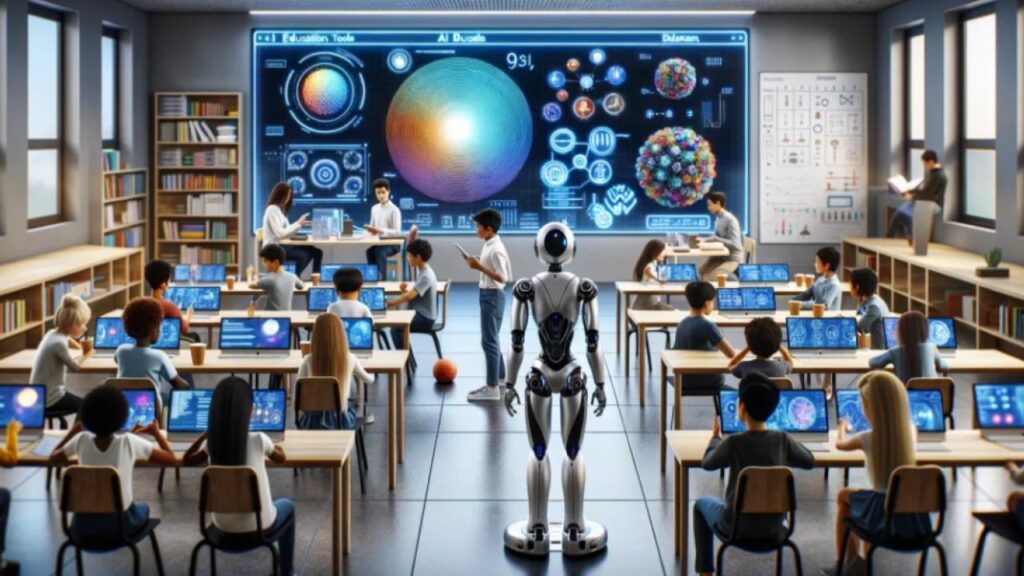AI is no longer a far-off concept. It’s already here, and it’s rapidly transforming the job market in ways that we could never have imagined. Microsoft’s recent study has revealed that there are at least 40 jobs at risk of being replaced by artificial intelligence in the near future. If you’ve ever wondered what the future of work might look like, this article is your guide to understanding the potential impacts of AI on your career. This comprehensive breakdown will give you valuable insights into which jobs are at risk and which ones are safe.

40 Jobs That Could Be Replaced by AI Sooner Than You Think
| Key Insights | Data & Stats | Career Insights |
|---|---|---|
| 40 jobs at risk of being replaced by AI | According to Microsoft’s study, AI can perform tasks like summarizing info, answering questions, and generating content | Professions most vulnerable involve routine tasks and repetitive jobs |
| Jobs less likely to be replaced by AI | Healthcare roles, construction laborers, and skilled trades are safe for now | Skills like emotional intelligence, problem-solving, and creativity are essential for future-proof careers |
| Upskilling is crucial | 75% of professionals believe they need to adapt to AI for career growth | Embrace new tech tools to stay competitive in your field |
AI is poised to reshape the workforce in ways that many of us didn’t anticipate. While some jobs are at risk, others will evolve, and many roles will remain untouched by automation. It’s essential to stay proactive in developing skills that are future-proof. Embrace AI tools, focus on developing your creative and emotional intelligence, and stay flexible. The future of work may look different, but it also holds many opportunities for those willing to adapt.
Introduction to the AI Revolution in the Workforce
AI is transforming industries worldwide, from healthcare to manufacturing, and even to customer service. The pace of this change is staggering. Microsoft, one of the world’s leading technology companies, recently revealed a study shedding light on which jobs are most at risk of being automated by AI in the coming years. This research focuses on over 200,000 interactions with Microsoft’s Copilot AI chatbot and highlights jobs that could be replaced sooner than you think.
But here’s the kicker—AI isn’t just about replacing jobs; it’s about changing how we work. As jobs become automated, the roles that remain will require us to adjust, adapt, and even upskill.
This article will explore the findings of the Microsoft study, give practical advice for workers, and help you understand how AI is reshaping the workforce.
What Jobs Are At Risk?
In the Microsoft study, over 40 job roles were identified as being highly susceptible to automation. These jobs typically involve tasks that AI can perform with ease—tasks like summarizing information, answering customer queries, or processing data.
Most Affected Jobs
Here are the top 10 jobs that are most at risk of being replaced by AI:
- Interpreters and Translators
- AI systems like Google Translate and Microsoft Translator are already providing instant translations in real-time. Although they’re not perfect, they’re much better than they were a few years ago and are improving rapidly.
- Historians
- AI can analyze historical data and generate reports faster than any human historian could. As technology improves, these roles could shift toward data interpretation rather than traditional research.
- Passenger Attendants
- Automated check-ins, luggage handling, and even self-driving taxis are on the rise. Roles in this sector are expected to be phased out in favor of more tech-centric services.
- Sales Representatives (Services)
- Sales roles that focus on processing orders or customer service are highly susceptible to automation. Chatbots, for example, are becoming more effective at handling customer inquiries.
- Writers and Authors
- AI writing tools like ChatGPT and others are quickly learning to create content for blogs, websites, and even books. The quality is often impressive, making this a potential job sector for AI disruption.
- Customer Service Representatives
- AI chatbots and virtual assistants are already answering customer questions and solving basic problems without the need for human agents. This trend will continue to expand.
- CNC Tool Programmers
- CNC machines (which control automated equipment) are now becoming more autonomous, which means the need for manual programming is gradually decreasing.
- Telephone Operators
- Automated systems are already handling telecommunication services, and this trend is expected to continue, making traditional telephone operator roles obsolete.
- Market Research Analysts
- AI tools can now analyze large datasets and generate reports much faster than humans. This shift is leading to the reduction of human market researchers.
- Travel Attendants
- Similar to passenger attendants, travel assistants, especially those who handle bookings and itinerary planning, are being replaced by apps and AI tools that can do the job automatically.
Other Affected Roles
In addition to the top 10, other roles at risk include:
- Retail clerks: AI-driven checkout systems are becoming increasingly popular.
- Delivery drivers: Autonomous vehicles and drones are changing the logistics sector.
- Bookkeepers and accountants: AI-powered software is able to handle bookkeeping tasks, such as tracking expenses and generating reports, reducing the need for human accountants.
Why Are These Jobs At Risk?
The key reason these jobs are at risk is automation. AI is increasingly capable of performing repetitive, routine tasks that used to require human intelligence. AI systems like ChatGPT or Copilot can summarize data, handle customer interactions, and even generate content—all tasks that were traditionally carried out by humans.
This trend doesn’t just mean that jobs will be replaced outright; in many cases, these roles will evolve. Some of the tasks previously done by humans may become automated, while new roles will emerge that require different skills and responsibilities.
The Upskilling Imperative
For those whose jobs are at risk, upskilling is the answer. Microsoft’s study found that professionals are already aware of the need to adapt to new technologies. A significant 75% of workers agree that AI literacy is critical for future career advancement.
Here are a few practical ways to stay ahead of the curve:
- Embrace AI tools: Learning to use AI tools in your field can help you remain valuable. For example, if you’re in customer service, familiarizing yourself with AI chatbots can make you more efficient.
- Develop human skills: Emotional intelligence, problem-solving, and creativity are areas where AI can’t match humans. These skills are highly valuable, especially in roles that require people management or strategic thinking.
- Explore tech-centric roles: Software development, data science, and AI programming are among the most promising careers of the future.
Jobs That Are Safe from AI (For Now)
While AI is rapidly advancing, not every job is at risk. Some roles remain crucial due to their need for human interaction, creativity, or physical labor. These are the jobs that are less likely to be replaced in the near future.
Top 5 Jobs Safe From AI
- Nursing Assistants
- AI may assist in diagnostics, but caregiving is deeply human. The ability to connect with patients emotionally and provide personalized care cannot be replaced by machines.
- Phlebotomists
- Although AI can help in diagnostics, drawing blood is still a task that requires human hands and understanding, making it less likely to be automated.
- Construction Laborers
- While automation is growing in construction (like 3D printing and robotic bricklaying), human oversight and hands-on work are essential for many aspects of construction.
- Massage Therapists
- Machines can’t replace the therapeutic touch of a trained massage therapist. This is a field where human expertise remains irreplaceable.
- Dishwashers
- Though dishwashing machines exist, the need for a human touch in certain kitchen settings, especially in large-scale operations, ensures job security for workers.
FAQs
1. Will AI take over all jobs?
No, AI will not take over all jobs. It’s more likely to automate specific tasks within jobs, creating opportunities for new roles and industries to emerge.
2. How can I protect my job from AI automation?
Focus on developing skills that AI cannot easily replicate, such as creativity, emotional intelligence, and complex problem-solving. Embrace new technologies and consider upskilling in AI-related fields.
3. What jobs will be in demand in the future?
Jobs in healthcare, tech, education, and skilled trades (like electricians and plumbers) are expected to grow as AI takes over routine tasks.
4. Is it too late to learn AI?
Absolutely not! There are many online resources available for beginners. It’s never too late to start learning AI and integrating it into your skillset.









